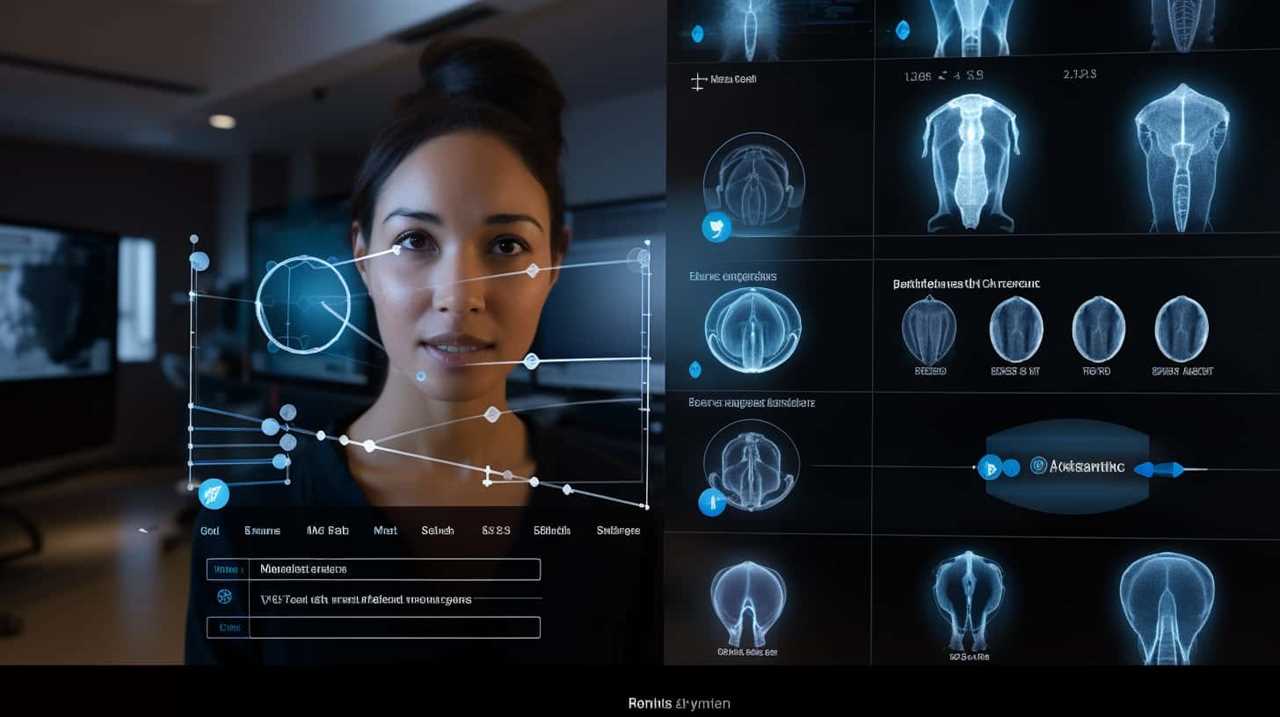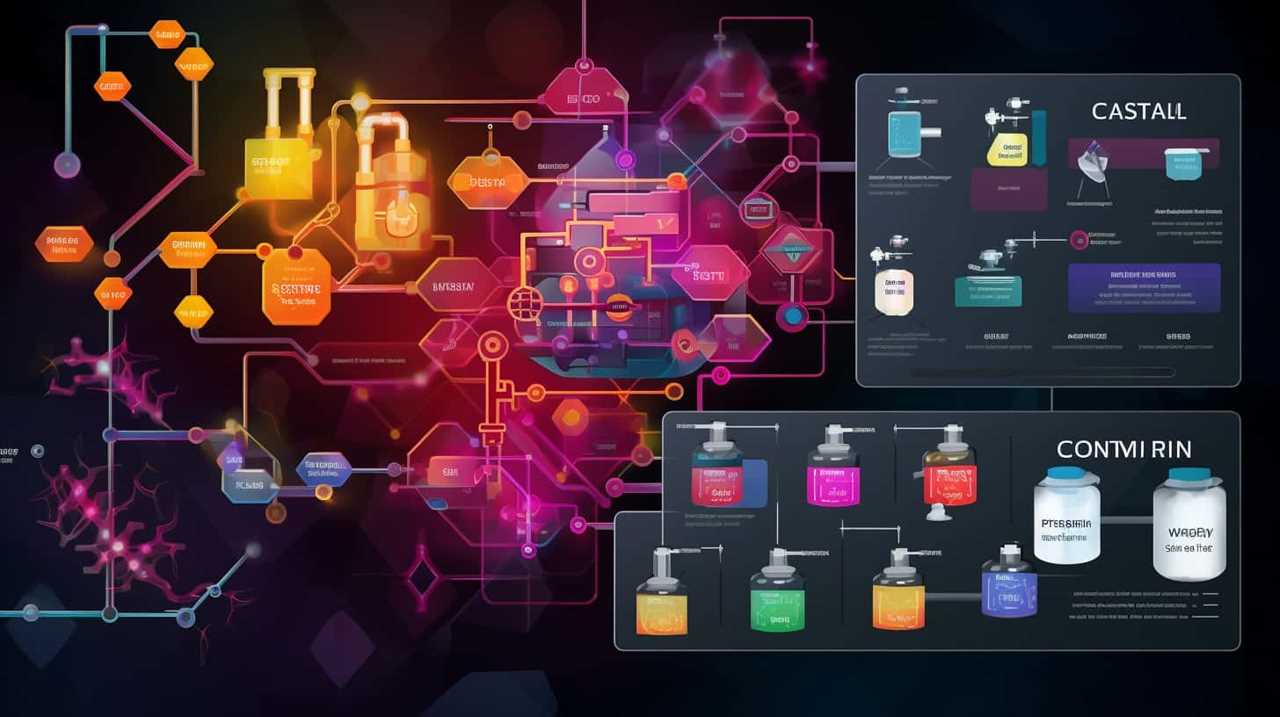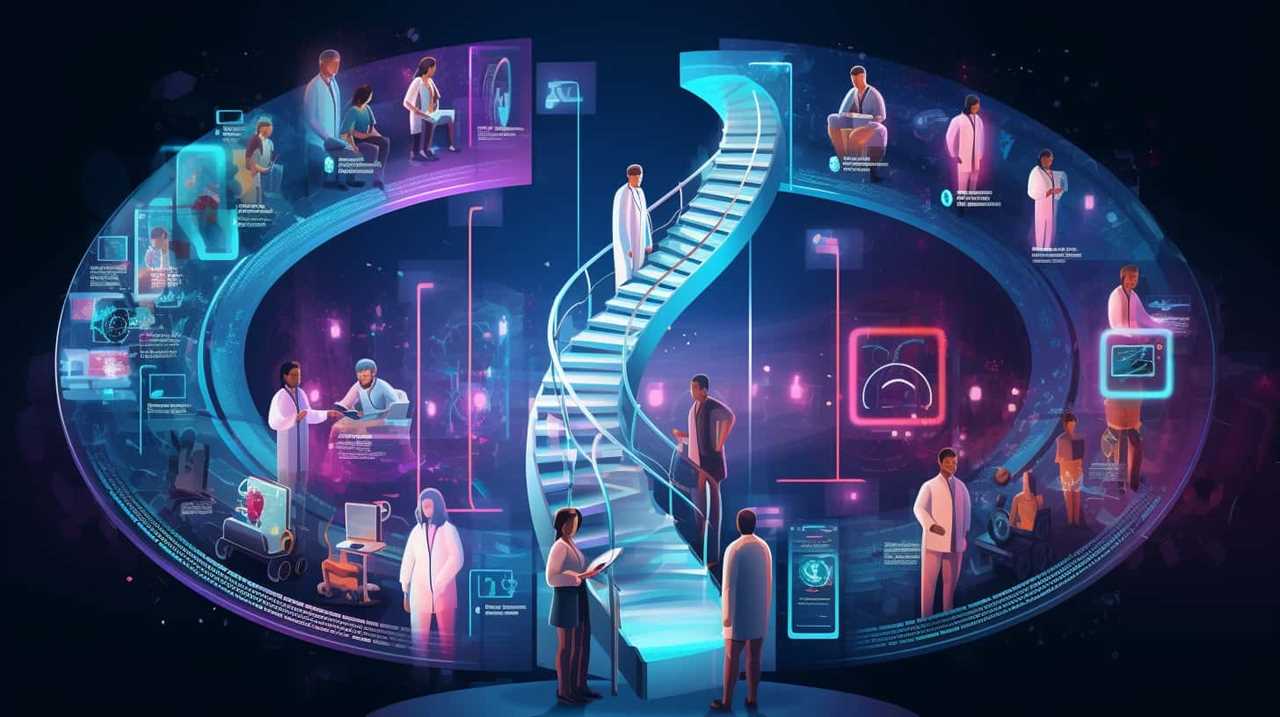As someone with a strong interest in AI and actively searching for job opportunities, I have been closely monitoring the job market. The increasing references to AI in job listings are truly intriguing. It is captivating to observe the swift increase in global demand for AI expertise.
Recent data shows that global AI job postings have more than doubled between July 2021 and July 2023. Notably, countries like the UK, Germany, and France have experienced significant increases too.
In this article, we’ll delve into this global surge in AI job postings and its implications for professionals like me.
Key Takeaways
- Job postings mentioning AI have more than doubled globally between July 2021 and July 2023.
- The increase in job postings is happening across industries.
- Job posts mentioning AI have seen 17% greater application growth over the past two years.
- Building AI skills is important as work environments are changing.
Increase in Global Job Postings
The global job market has experienced a significant surge in job postings mentioning AI, indicating the growth of the AI job market. This surge is evident in the doubling of job postings globally between July 2021 and July 2023.

Countries like the UK, Germany, and France have witnessed substantial increases, with rises of 2.3x, 2.6x, and 2.8x, respectively.
It’s important to note that this increase in job postings isn’t limited to specific industries; AI skills are in demand across a wide range of sectors and geographies. This growth reflects the increasing job opportunities in the AI field.
As professionals, it’s crucial to recognize the potential of AI and equip ourselves with the necessary skills to tap into these opportunities in the ever-evolving job market.
UK Job Postings Surge
As I continue discussing the surge in job postings mentioning AI, it’s worth noting that the UK has experienced a significant increase in job opportunities in this field. The AI job market growth in the UK has been remarkable, with a 2.3x rise in job postings mentioning AI. This surge in AI job opportunities has had a profound impact on the UK job market.

Here are five key points to consider:
- The UK has seen a 2.3x increase in job postings mentioning AI.
- This growth is part of a global trend, with Germany and France also experiencing significant jumps of 2.6x and 2.8x, respectively.
- The increase in job postings isn’t limited to a specific industry, but rather happening across various sectors.
- AI skills are in high demand across a wide range of industries and geographies.
- The expansion of the AI job market in the UK reflects the growing importance of AI in the future of work.
The rise in AI job opportunities in the UK demonstrates the increasing significance of AI skills in the job market. This trend presents both challenges and opportunities for job seekers and employers in the UK.
Germany’s Job Postings Spike
During the surge in job postings mentioning AI, Germany experienced a significant spike in job opportunities.
The AI job market in Germany has witnessed remarkable growth, with job postings mentioning AI jumping by 2.6 times between July 2021 and July 2023. This increase in AI-related job postings is indicative of the impact AI is having on Germany’s workforce.

As AI technology continues to advance, companies across various industries in Germany are recognizing the need for professionals skilled in AI. This trend highlights the importance of developing AI skills to remain competitive in the changing job market.
With the demand for AI expertise on the rise, expanding one’s skill set to include AI knowledge becomes crucial for future-proofing careers in Germany.
France’s Job Postings Soar
France experienced a significant surge in job opportunities related to AI during the global increase in job postings mentioning AI. This growth in the AI job market reflects the increasing demand for AI skills in France. Here are some key insights:
- Job postings mentioning AI in France increased by 2.8x between July 2021 and July 2023.
- The rise in job opportunities isn’t limited to a specific industry, indicating the widespread integration of AI across sectors.
- The demand for AI skills in France is in line with the global trend, highlighting the importance of these skills in the changing job market.
- Professionals in France are showing a strong interest in AI, with 57% expressing a desire to learn more about it.
- The increase in AI job postings and the demand for AI skills in France emphasize the need for individuals to expand their skill sets to future-proof their careers.
AI Skills in High Demand
The demand for AI skills is skyrocketing, reflecting the global surge in job postings mentioning AI. With job posts mentioning AI seeing a 17% greater application growth over the past two years, it’s clear that professionals are recognizing the importance of acquiring AI skills.

In fact, 89% of professionals surveyed globally are excited to use AI, while 57% want to learn more about it. As work environments continue to change, building AI skills has become crucial for future-proofing careers.
Employers and employees alike are adjusting to a future of work that includes AI, and expanding skills is seen as a necessary step in staying relevant. Basic knowledge of AI can be beneficial in the changing job market, and acquiring AI skills is increasingly seen as a way to future-proof one’s career.
Impact on Job Applications
As someone who’s witnessed the global surge in job postings mentioning AI, I can attest to the significant impact AI has had on job applications.
The growth in AI job postings has directly translated into an increase in job applications, with a 17% greater application growth over the past two years.

This surge in AI job applications can be attributed to the growing interest among LinkedIn users in AI. Professionals globally aren’t only excited to use AI but also keen to learn more about it, with 89% expressing their excitement and 57% expressing their desire to learn more.
This heightened interest is reflected in the ninefold increase in the number of LinkedIn users with AI skills since early 2016.
It’s clear that AI has become a crucial factor in job applications, and possessing AI skills can greatly enhance one’s chances in the changing job market.
LinkedIn Users Embrace AI
During my observations of the global surge in job postings mentioning AI, I have noticed that LinkedIn users are enthusiastically embracing AI. LinkedIn, as a professional networking platform, plays a crucial role in promoting AI skills and connecting professionals with AI job opportunities. The platform has witnessed a significant increase in the number of users adding AI skills to their profiles, reflecting the growing interest and usage of AI-based tools and products. In fact, the number of LinkedIn users with AI skills has increased ninefold since early 2016. This trend highlights the importance of AI skills in the current job market and the eagerness of professionals to stay updated with the latest technology. LinkedIn’s efforts in promoting AI skills are further evident as 57% of professionals globally express their desire to learn more about AI. The table below provides a snapshot of LinkedIn users’ engagement with AI skills.

| LinkedIn Users and AI Skills |
|---|
| Professionals with AI skills |
| Early 2016: 10,000 |
| July 2023: 90,000 |
| Professionals wanting to learn more about AI |
| Global: 57% |
| UK: 76% |
This data highlights the global interest and enthusiasm among LinkedIn users for AI. As the AI job market trends continue to grow, LinkedIn is playing a pivotal role in facilitating the development and promotion of AI skills.
Global Excitement for AI
LinkedIn users’ enthusiasm for AI reflects a global excitement and keen interest in the field. This global excitement can be attributed to several factors, including the ethical considerations surrounding AI and its potential impact on various industries.
Here are some key points to consider:
- The rise in job postings mentioning AI globally highlights the increasing demand for AI skills across industries and geographies.
- Professionals worldwide are showing a high level of interest in AI, with 57% expressing a desire to learn more about it.
- AI skills have become increasingly important for future-proofing careers, as work environments evolve and the job market changes.
- The healthcare industry is one sector that has seen significant advancements in AI, with applications ranging from diagnosis and treatment to personalized medicine.
- However, ethical considerations must be taken into account when implementing AI in healthcare, ensuring patient privacy, data security, and unbiased decision-making.
The global excitement for AI is fueled by its potential to revolutionize industries like healthcare while also raising important ethical considerations.

Importance of AI Skills
Building AI skills is an essential step in navigating the changing job market and future-proofing my career. The demand for AI skills is evident across industries and geographies. Employers and employees are recognizing the importance of AI skills as work environments evolve. In fact, job postings mentioning AI have seen 17% greater application growth over the past two years. It’s clear that having a basic knowledge of AI can be beneficial in the changing job market.
Moreover, AI skills have significant implications in education and healthcare. In education, AI can enhance personalized learning experiences, automate administrative tasks, and improve educational outcomes. In healthcare, AI can assist in diagnosis, drug development, and patient monitoring, leading to more accurate and efficient healthcare services. The integration of AI skills in these industries has the potential to revolutionize the way we learn and receive healthcare.
To illustrate the importance of AI skills, consider the following table:
| Industry | AI Applications |
|---|---|
| Education | Personalized learning, administrative automation |
| Healthcare | Diagnosis, drug development, patient monitoring |
Changing Work Environments
As work environments evolve in response to the increasing demand for AI skills, professionals like me are navigating a changing landscape where the integration of AI is reshaping the way we work. The changing work dynamics and adapting to technological advancements are key factors in this transformation.

Here are some insights on how AI is impacting our work environments:
- AI is revolutionizing job postings, with a global surge of more than double in mentions of AI.
- This increase is happening across industries, indicating the widespread adoption of AI skills.
- Job applications for AI-related positions have seen a significant growth of 17% in the past two years.
- Professionals globally are excited to use AI, with 89% expressing enthusiasm and 57% wanting to learn more about it.
- The rise in AI skills on LinkedIn profiles reflects the growing interest and usage of AI-based tools and products.
The integration of AI is reshaping our work environments, and professionals are embracing the changing dynamics by adapting to technological advancements.
Global Interest in AI
The high level of interest in AI among professionals globally reflects the growing adoption and usage of AI-based tools and products. This surge in interest can be seen through the significant increase in job postings mentioning AI, which have more than doubled between July 2021 and July 2023.
It’s clear that professionals recognize the potential of AI and are eager to learn more about its applications and implications. However, alongside this interest, there are also challenges to AI adoption that need to be addressed, such as ensuring ethical considerations are taken into account.

As AI continues to reshape industries and job markets, it’s crucial for professionals to not only acquire AI skills but also navigate the ethical landscape to ensure responsible and beneficial AI implementation.
Varying Levels of Excitement
I’m excited about the varying levels of excitement professionals globally have shown towards AI.
The global adoption of AI is evident in the surge of job postings mentioning AI, which have more than doubled between July 2021 and July 2023. This growing interest can be seen in the high levels of enthusiasm professionals have displayed.
Here are some key insights:

- The UK experienced a 2.3x rise in job postings mentioning AI.
- Germany and France saw even higher jumps with increases of 2.6x and 2.8x respectively.
- The increase in job postings isn’t limited to specific industries, but rather happening across various sectors.
- Professionals globally aren’t only excited about AI, but also eager to learn more about it, with 57% expressing a desire for further knowledge.
- The number of LinkedIn users with AI skills has increased ninefold since early 2016, indicating the growing interest and adoption of AI-based tools and products.
The varying levels of excitement professionals exhibit towards AI highlight the global interest and potential impact of this technology.
Future Implications on Jobs
Considering the global surge in AI job postings and professionals’ growing interest in AI, it’s crucial to explore the future implications of AI on jobs.
AI is predicted to have an immense impact on the labor market, and this impact has already begun. One of the major concerns is AI job displacement, where automation takes over tasks that were previously performed by humans. This raises ethical concerns about AI in the workforce, particularly regarding job loss and the need to retrain and reskill workers.
Employers and employees are adjusting to a future of work that includes AI, and evolving skill sets are a long-term shift in response to AI. Expanding skills is seen as important for future-proofing careers in the face of AI’s impact.

Adjusting to a Future With AI
As we move forward into a future with AI, I find it crucial to address the challenges and opportunities that arise from this technological advancement. The impact of AI on jobs has already begun, and employers and employees are adjusting to a future of work that includes AI.
Here are some key considerations:
- Adapting the workforce: The integration of AI requires the workforce to develop new skills and adapt to changing job requirements.
- Ethical considerations: As AI becomes more prevalent, ethical questions arise regarding data privacy, algorithmic biases, and the potential for job displacement.
- Upskilling and reskilling: Expanding skills is seen as important for future-proofing careers in the face of AI’s impact.
- Collaboration between humans and AI: Finding ways for humans and AI to work together effectively will be crucial for maximizing the benefits of AI technology.
- Redefining job roles: AI will automate certain tasks, leading to a shift in job roles and the need for employees to take on new responsibilities.
It is essential to navigate these challenges and seize the opportunities that AI presents to create a future workforce that can thrive in an AI-driven world.
Frequently Asked Questions
What Specific Job Roles Are Seeing the Highest Increase in Job Postings Mentioning AI Globally?
In the AI job market, there’s been a significant increase in job postings mentioning AI globally. The impact of AI on job roles is evident as employers seek candidates with AI skills.

Specific job roles that have seen the highest increase in job postings mentioning AI include AI engineers, data scientists, machine learning specialists, and AI researchers.
This surge in job postings reflects the growing demand for professionals who can contribute to the development and implementation of AI technologies across various industries.
Are There Any Particular Industries That Have Experienced a Significant Surge in Job Postings Mentioning Ai?
In terms of the impact on the job market, there’s been a significant surge in job postings mentioning AI across various industries.
This surge presents opportunities for upskilling and expanding one’s skill set to stay relevant in the changing job market.

It’s crucial for individuals to recognize the importance of AI skills and how they can future-proof their careers.
As AI continues to have an immense impact on the labor market, adapting and developing AI-related skills will be key for staying competitive.
How Are Job Seekers Without AI Skills Adapting to the Increasing Demand for AI Skills in Job Applications?
Job seekers without AI skills are adapting to the increasing demand by implementing upskilling strategies. They understand the impact AI has on the job market and recognize the need to stay competitive.
Many are taking online courses and attending workshops to acquire basic knowledge of AI. They’re also leveraging their existing skills and experience to demonstrate their adaptability and willingness to learn.

Are There Any Challenges or Concerns RAIsed by Professionals Regarding the Use of AI in the Workplace?
Challenges and concerns raised by professionals regarding the use of AI in the workplace are significant. According to a survey, 42% of professionals worry about job security due to AI automation, while 37% express concern about potential job displacement. These statistics highlight the apprehension professionals have regarding the impact of AI on their careers.
As AI continues to advance, addressing these concerns and ensuring a smooth transition in the workforce becomes crucial for organizations and policymakers.
What Are Some Examples of Ai-Based Tools and Products That Professionals Are Using and Adding to Their Linkedin Profiles?
AI-based tools and products are becoming increasingly popular among professionals, as they’re adding them to their LinkedIn profiles. These tools and products showcase their adaptability to AI skills and their willingness to embrace the latest technology.
Some examples of AI-based tools and products that professionals are using include machine learning algorithms for data analysis, natural language processing applications for text understanding, and computer vision systems for image recognition.

Conclusion
In light of the skyrocketing surge in global AI job postings, it’s evident that the demand for AI skills is reaching unprecedented heights. The UK, Germany, and France have witnessed significant spikes in AI-related job postings, showcasing the widespread need for AI expertise across various sectors.
As professionals, it’s crucial to recognize the growing importance of building AI skills to stay competitive in today’s changing work environment. Embracing the opportunities presented by AI can pave the way for a successful and fulfilling career in the future.








